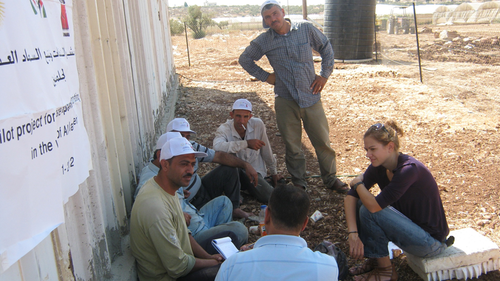RESEARCH PROJECT

The village of Al Jalameh, in the Jenin governorate, in Palestine, has for the first time a system of separate collection at the source, which involves families, schools, businesses and farms. A pilot project of the Department of Civil, Chemical, Environmental and Materials Engineering of the University of Bologna created to improve the waste management system and, consequently, the quality of life of the inhabitants and the environment in which they live. And among the objectives there is also that of promoting the production of compost to be used as fertilizer for local crops.
The lack of adequate solid waste management, moreover, is a serious problem in Palestine, which has serious consequences both on environmental sustainability and on public health. The causes are linked to the continuous growth of population density, the weakness of local government and the lack of resources and experience in waste management.
The project started with the separation of waste between the wet fraction and the dry fraction, carried out by placing containers for daily collection near homes and in schools. Furthermore, ecological points were established for the separation of paper and cardboard. The collected waste is then transferred to a pre-selection center in the local landfill, where it is treated for recycling. On the other hand, wet wastes from farms feed a compost plant designed ad hoc and managed by Al Jalameh Agricultural Cooperative. Compost born from waste is then sold to farmers on the local market: a choice that contributes to improving agricultural practices with a view to sustainability.
In addition, plastic from the irrigation pipes and from the sheets of the farm greenhouses is also collected. Once placed in a dedicated area, it will be sold to a company in Jalbun - a town about 15 kilometers from Al Jalameh - where it will be recycled and used to produce cables for electrical use.
Thanks to this better organization of the waste collection system, the 2700 inhabitants of Al Jalameh can thus improve their living conditions, both from a hygienic and environmental point of view and from that of income opportunities, thanks to the availability on the market of a natural fertilized at low cost.
A successful project thanks to the involvement of local authorities, schools and the population. With a particular help arrived from the associations of women and mothers, who enthusiastically promote the themes of environmental sustainability.
(in Italian)